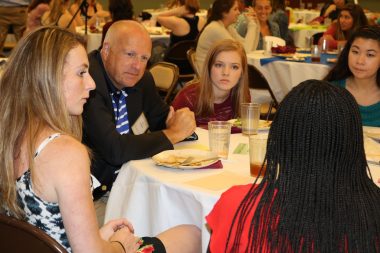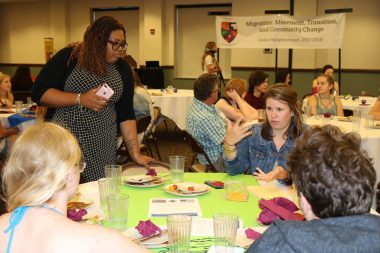A large turnout of students, faculty, and staff – including President Leo M. Lambert – learned about issues of refugee resettlement from the North Carolina African Services Coalition.
The Global Neighborhood Association hosted its first House Dinner of the new academic school year on Sept. 5, the first under a new theme for the year, “Migration: Movement, Transition, and Community Change.”

Mekonnen and Walker gave a presentation entitled “Refugee Resettlement: Facts, Processes, and Integration.” Many attendees were surprised to learn about the many stages of the approval, screening and placement process.

Those attending Tuesday’s dinner discussed a challenging case study of how to help a refugee family dealing with domestic violence issues. In conclusion, Mekonnen urged anyone who feels strongly about refugee issues to contact their government representatives and voice their concerns.
The next Global Neighborhood Association event will be the first movie in the Film Series. The film will be “Disruption,” a 2014 documentary about the effects of climate change in disasters around the world, and why societies do so little to prevent them. The film will be shown on Tuesday, Sept. 19 at 7 p.m. in Global Commons 103.


